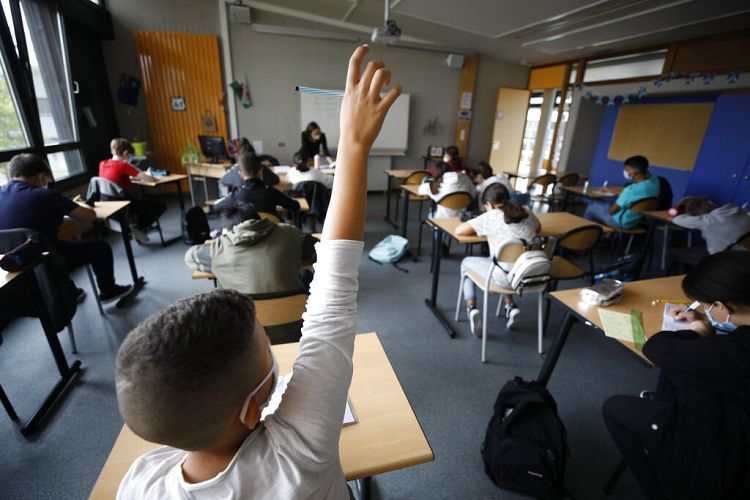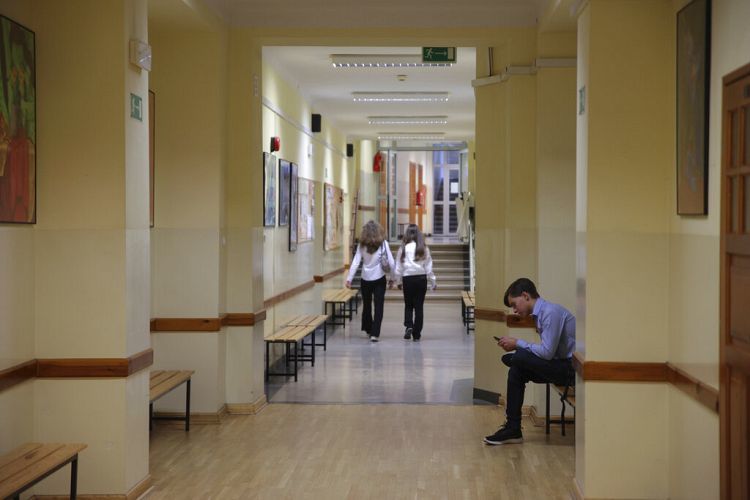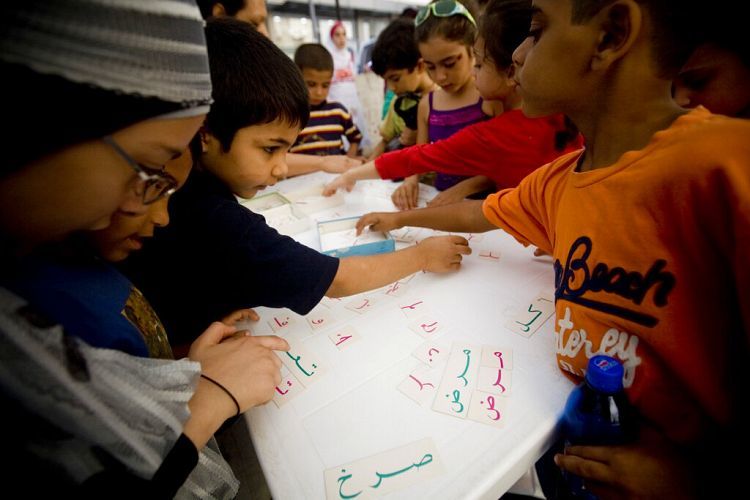
The Arabic language is vital to educational systems of the future
Access to critically needed languages, including Arabic, is increasingly becoming a social justice issue.
Without access to language learning, 21st-century workers — especially the marginalised or disadvantaged — face a significant loss of economic, social, and cultural opportunities.
A 2022 RAND report estimated a £2 return for every £1 spent on Arabic, French, Mandarin, or Spanish education in the UK.
Furthermore, the report stated that a full eradication of language barriers with Arabic-, Chinese-, French- and Spanish-speaking countries could increase UK exports annually by about £19 billion (€21.8bn).
While these are numbers for the UK alone, increasing language education across European economies would have an exponential, positive effect across all spheres.
Bilingual workers have it better
The positive socioeconomic impact of multilingualism is rising — which is why studies show that learning foreign languages, primarily the less commonly taught and critically needed languages, is associated with higher wages and wage growth.
In the US, one study estimated that speaking a second language boosted college graduates’ earnings by an average of some 2% compared to those who did not learn another language.
These bilingual and bi-literate workers have opportunities to learn about other cultures and participate on a global stage in ways other workers without these skills would never be able to take advantage of.
The educational system as it stands today is ill-equipped to address this critical need, beginning at an early age.
Arabic is one of the most widely spoken languages in the world, so why aren’t more schools offering it as part of their regular school timetable at an earlier age?

Students face equity and inclusion issues, and future graduates will continue to forfeit the life-changing opportunities that language learning provides.
If the aim of education is to equip students with skills needed to live in a diverse, complex socio-cultural environment, language education is the foundation.
The EU lists multilingualism as a key competence, but we still need to see more schools stepping up and challenging young, talented minds to develop valuable language skills.
Arabic is one of the most widely spoken languages in the world, so why aren’t more schools offering it as part of their regular school timetable at an earlier age?
Why is Arabic so underrepresented in schools?
Arabic is the official language in more than 27 countries. It is one of the six official languages of the United Nations.
Across the EU, Arabic is consistently ranked as one of the most spoken languages, and governments are increasingly positioning Arabic as a language of global and economic importance.
It is a popular offering in university language programs, often mentioned as one of the languages of the future, and included in policies celebrating diversity and inclusion.
Yet, the attention and investment in learning the language at the primary and secondary levels (when language learning is most effective) fall short.
In many countries, Arabic is the second most-spoken language at home, yet it is rarely offered as a course on the school timetable.

The provision of Arabic is critically underrepresented and needs to reflect changing populations. In many countries, Arabic is the second most-spoken language at home, yet it is rarely offered as a course on the school timetable.
When offered, Arabic is usually framed around the home and community language instruction or only provided in supplemental schools or those out of the formal school environment, with little-to-no focus on Modern Foreign Language (MFL) study unless it is an elite or privileged educational environment.
This framing takes away opportunities from the general population to access one of the oldest and richest languages in the world.
By not providing access to Arabic language education to the masses, those who look to our state-funded education systems for socio-economic growth in the global market miss out on a range of opportunities that language learning, especially Arabic, affords.
These opportunities should be available to everyone.
We need an ecosystem fostering cultural awareness and mutual understanding
Students who start learning Arabic at an early age attain a higher level of communicative skills. We have witnessed time and again the life-changing impact that comes with learning a foreign language.
Students, with or without an Arabic-speaking background, who learned Arabic through QFI-supported programs have gone on to work in policy, trade, law, journalism, and education.
When school principals, teachers, students, and parents come together around language education, entire communities are transformed.
Such an ecosystem can foster greater cultural awareness, mutual understanding, and social cohesion. This is essential for all languages, but especially for Arabic.

A successful early education language program needs these elements: policymakers and/or decision-makers who support multilingualism by allocating adequate resources, administrators committed to advancing language education, certified language teachers, appropriate assessments of language progression, motivated parents, and curious students.
Together, such an ecosystem can foster greater cultural awareness, mutual understanding, and social cohesion. This is essential for all languages, but especially for Arabic.











